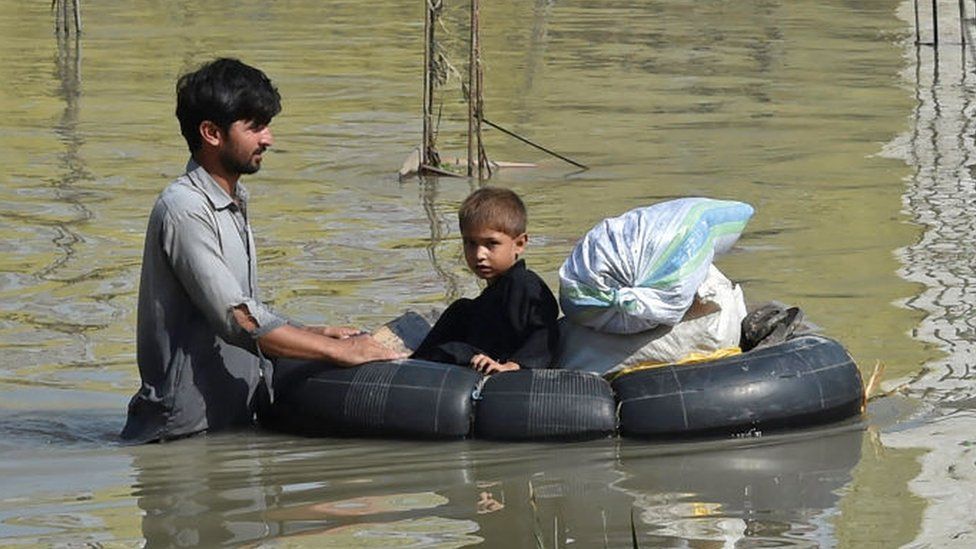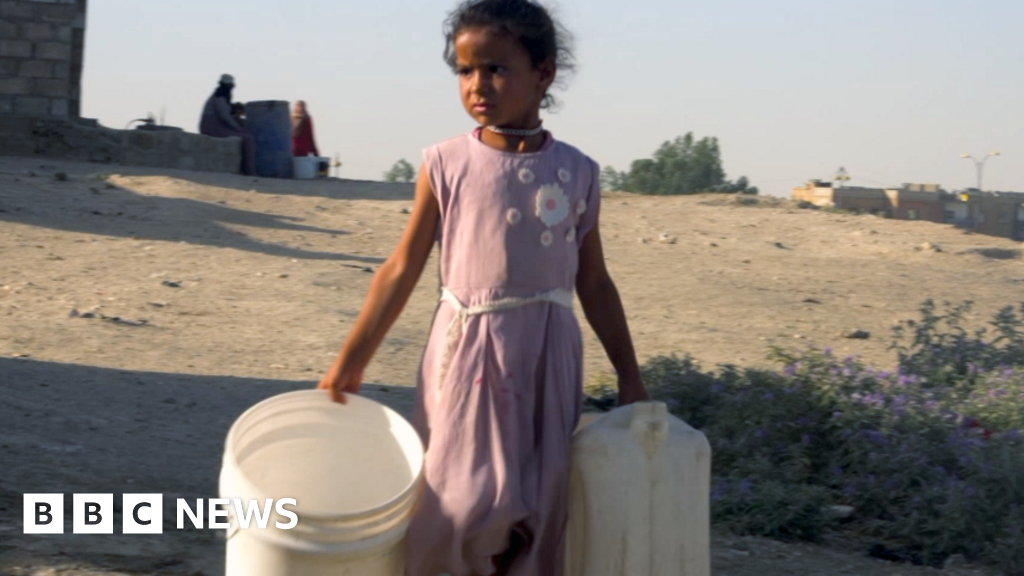ARTICLE AD BOX
By Peter Hoskins
Business reporter
 Image source, Getty Images
Image source, Getty Images
Pakistan's planning minister says early estimates show the devastating floods to hit the country have caused at least $10bn (£8.5bn) of damage.
His comment comes as another government minister said that one-third of the South Asian nation has been submerged.
Separately on Monday, Pakistan received a $1.1bn bailout from the International Monetary Fund (IMF).
That money is aimed to help the cash-strapped economy avoid defaulting on its debts.
The unprecedented flash floods caused by historic monsoon rains have killed at least 1,136 people and affected more than 33 million, over 15% of the country's population.
The torrential rains have also washed away roads, crops, homes, bridges and other infrastructure.
"I think it is going to be huge. So far, [a] very early, preliminary estimate is that it is big, it is higher than $10 billion," Pakistan's planning minister Ahsan Iqbal told the Reuters news agency.
Mr Iqbal added that the country would face serious food shortages in the coming weeks and months and believed that the floods were worse than those that hit Pakistan in 2010, the deadliest in the country's history which left more than 2,000 people dead.
To address the food shortages, finance minister Miftah Ismail said Pakistan could consider importing vegetables from arch-rival India.
On Monday, the country's climate change minister Sherry Rehman described the situation as a "climate-induced humanitarian disaster of epic proportions."
"Literally, one-third of Pakistan is underwater right now, which has exceeded every boundary, every norm we've seen in the past," Ms Rehman told the AFP news agency.
Even before the floods Pakistan was suffering from an economic crisis and had been negotiating with the IMF over a bailout.
Official figures released in recent weeks showed that the country had only enough foreign currencies in reserve for about a month of imports as its economy struggles with an annual inflation rate of almost 25%.
In a statement on the bailout, IMF deputy managing director Antoinette Sayeh said: "Pakistan's economy has been buffeted by adverse external conditions, due to spillovers from the war in Ukraine, and domestic challenges, including from accommodative policies that resulted in uneven and unbalanced growth."
The floods were not mentioned in the statement.
You may also be interested in:
Watch: Hundreds of people have been rescued from flooding in Pakistan

 2 years ago
15
2 years ago
15








 English (US)
English (US)